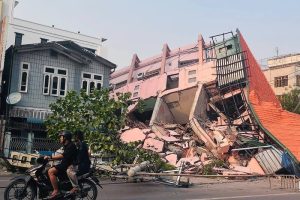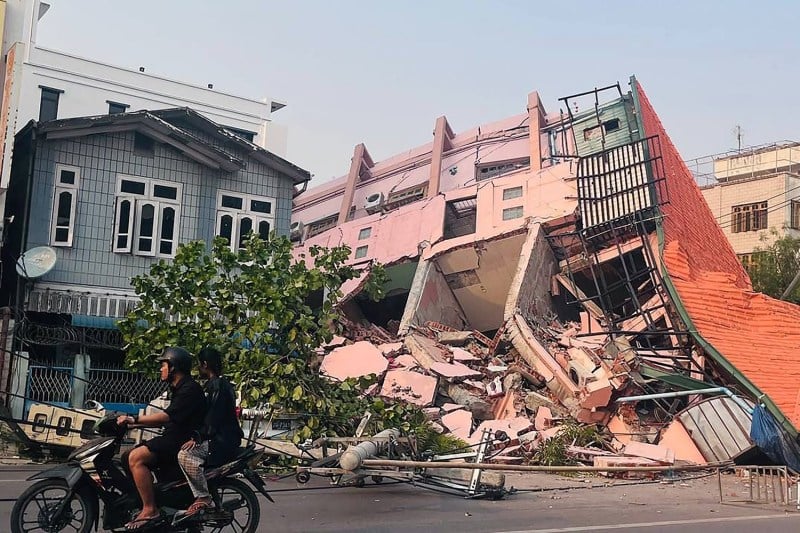By Ncaba Ntshakala
The Kingdom of Eswatini has expressed deep sorrow over the devastating earthquake that struck Myanmar, sending tremors through Thailand and surrounding regions.
Prime Minister Russell Dlamini, speaking on behalf of His Majesty King Mswati III, Her Majesty the Queen Mother, the Government, and the People of Eswatini, conveyed heartfelt condolences to the affected nations, mourning the loss of over 1 600 lives and the hundreds still missing.
In a statement, the Prime Minister affirmed Eswatini’s solidarity with Myanmar and Thailand during this time of grief, extending thoughts and prayers to the bereaved families, the injured, and the governments as they grapple with the disaster’s aftermath.
RELATED: Tremors felt in Eswatini as earthquake strikes Mpumalanga
He expressed hope for the swift recovery of those injured and highlighted Eswatini’s commitment to standing with the affected nations as they navigate the immense devastation.
A devastating 7.7-magnitude earthquake struck Myanmar on March 28, 2025, at approximately 12:50 PM local time, with its epicenter near Sagaing Township, close to the Sagaing–Mandalay border region.
The quake caused widespread destruction, particularly in Mandalay, Myanmar’s second-largest city, and Naypyidaw, the capital.
Buildings collapsed, infrastructure was severely damaged, and communication networks were disrupted.
The death toll in Myanmar has risen to over 1,600, with more than 3,400 injured and hundreds still missing.
The earthquake’s impact extended to neighboring Thailand, where tremors were felt as far as Bangkok, approximately 1,000 kilometers from the epicenter.

In Bangkok, a 30-story building under construction collapsed, resulting in at least 10 confirmed deaths and many more feared trapped under the rubble.
Overall, Thailand has reported 10 fatalities and 78 individuals missing in the Bangkok area due to the earthquake.
Media reports asserts that rescue and relief operations in both countries are facing significant challenges. In Myanmar, efforts are hampered by damaged infrastructure, ongoing civil unrest, and communication breakdowns.
RELATED: Banking group IIF to proceed with annual meeting in earthquake-hit Morocco
International aid has begun to arrive, with countries like China, India, Russia, and Thailand contributing to relief efforts.
However, access to affected areas remains difficult, and shortages of medical supplies, food, and clean water are exacerbating the humanitarian crisis


